a review of every book i read this summer
european trips, sapphic relationships, and girls just having fun
Do you remember when your local library or community center would host summer reading programs for kids and teens? Where the more books you read, the more tickets you get, and at the end of the summer you could choose a prize? That’s the energy I wanted to have this summer and suffice to say, I achieved it. Sans a few outliers, this summer I found myself drawn to novels about young women going through metamorphosis in small European towns, having intense relationships with homoerotic undertones, and scamming their way through summer with nothing but charm and good luck. Many of these novels are of the “nothing happens” sort, which are my favorite kind to read, especially in the summer.
The Guest by Emma Cline
Emma Cline’s The Guest has been all over my social media and after reading its description, I had to give it a chance. The story follows Alex, a 20-something sex worker staying on Long Island with her rich, much older boyfriend, Simon. Alex’s relationship with Simon is built on lies and appearances, and when Alex slips up at a dinner party, Simon sends her packing. With hardly any money, angry ex-roommates, and a drug dealer after her, Alex has nowhere to go. So instead of returning to the city, Alex drifts between homes, using her looks and talent for reading people to get by for 5 days until Simon’s Labor Day party, where she thinks she can show up and be forgiven.
After a year of stories like Glass Onion, Triangle of Sadness, and The Menu, the class commentary is nothing new, yet it’s still interesting. Alex can fool the rich of Long Island but the bartenders, house cleaners, and other working-class staff sniff her out immediately, making for interesting tension. What I loved most about this novel is its theme of believing your delusions even when you know they’re not true. Alex survives by morphing into what others want, so she’s never had a strong sense of self. This combined with an opioid addiction is the perfect recipe for disaster that is bound to catch up with her by the novel’s end. She’s an awful person but a compelling protagonist. The prose is excellent. You know when summer gets to a point where it’s gone on for too long and morphs from a pleasant daydream to a dream you can’t wake up from? That’s what reading this novel is like.
“People, it turned out, were mostly fine with being victimized in small doses. In fact, they seemed to expect a certain amount of deception, allowed for a tolerable margin of manipulation in their relationships.”
Happy Hour by Marlowe Granados
Continuing my series of young women scamming their way through New York, Happy Hour by Marlowe Granados is next. The story follows Isa and her best friend Gala, two twenty-one-year-old Canadians who get by for the summer in NYC by doing odd jobs. These range from selling clothes at a market stall to being audience members for live TV to a brief audition as foot models, to name a few. By day, they rent a room in a Bed-Stuy sublet and survive off sandwiches from the bodega, and by night, they charm their way through NYC’s club and art scenes, making friends of all kinds along the way. But as money gets tighter, the pair’s friendship is tested.
Isa as a protagonist resembles the persona of Eve Babitz. While Isa gallivants through various social scenes, her sharp wit and keen eye allow her to make genuine connections and thoughtful observations. She’s a bonafide party girl and thought daughter! (I’m sorry). I highly recommend this if you want a comforting read that lets you live precariously through a compelling protagonist. Without giving away any spoilers, I was expecting something awful to happen but it never really does. Of course, the characters struggle and Isa’s backstory is a little traumatic but that only makes her more real and helps you understand why she is content to drift. Apparently, Granados had a hard time pitching to publishers because nothing bad happens in the story. I’m so glad she found a publisher that let her do the book her way because I’m tired of stories about young women being sad trauma porn.
“He said, 'What do you want?' All I could think of was peeling the skin of a Valencia orange in bed on a bright morning with someone pulling me into the covers because they want to spend two or three minutes nestling before starting their day. So I said, 'Not much.’”
Hot Milk by Deborah Levy
Hot Milk follows Sofia Papastergiadis, a 25-year-old half-Greek half-British woman who should be finishing her anthropology degree but works as a barista and tends to the many ailments of her mother, Rose, instead. The pair travels to Spain for the summer to seek treatment from Dr. Gomez, a famous clinician with unconventional healing methods. Able to take care of herself instead of her mother for the first time, Sofia has dalliances with Ingrid, a local seamstress, and Juan, the beach’s injury hut employee (but she’s more infatuated with Ingrid). As Dr. Gomez’s treatments get stranger and Rose’s symptoms become more baffling, Sofia learns to sever the ties she has to her mother and starts exploring herself more–her identity, her desires, and her curiosity.
I picked up this book to dissociate and pretend that I was having a European summer, and the goal was met, but that’s certainly not the only great thing about this book. While the mystery of Rose and Dr. Gomez felt a little lacking, it’s not the novel’s point nor what makes it so good. It’s Sofia’s codependent relationship with Rose and how she learns to become her own person after a delayed coming-of-age. This is nothing new of course but Sofia’s narration makes it feel so fresh. As an anthropology student, she’s always making observations and asking questions. Reading the way her mind works was truly enthralling. I also loved how Sofia explored her Greek identity–her father left her when she was young, so she never felt attached to her Greek roots. Yet with her dark hair, olive skin, and complicated last name, Sofia has felt “othered” in England. Exploring this side of herself that has nothing to do with her mother was fascinating. This might be my favorite book on this list when it comes to character transformations.
“I am not okay. Not at all and haven't been for some time. I did not tell her how discouraged I felt and that I was ashamed I was not more resilient and all the rest of it which included wanting a bigger life but that so far I had not been bold enough to make a bid for things I wanted to happen and I feared it was written in the stars that I might end up with a reduced life like hers...”
Hercule Poirot and the Greenshore Folly by Agatha Christie
I was pet-sitting one day and ran out of books to read so I perused the owners’ shelves and found this. I’m one of those people who would love to get into Agatha Christie–I even bought a bunch of her novels when a secondhand bookstore had a going under sale–but for some reason I never can. Even though everything about her seems right up my alley (mysteries, spooky vibes, British people) other books just took precedence. But this short novella took me by surprise! It follows one of her usual characters, Hercule Poirot, as he solves a murder at an isolated English estate during a murder mystery party. This was basically Clue before Clue (although the board game ‘Clue’ was out by this time). The plot twist was great even though it felt like Poirot solved the mystery out of nowhere instead of the narration providing enough significant clues. But I did finish this in one afternoon so I’m not too annoyed. This particular edition was actually unpublished for 60 years. Christie originally wrote it as a fundraiser for her church and never intended to publish it as is. Instead, she wrote an expanded version, Dead Man’s Folly. Maybe I’ll finally get into more Agatha Christie this upcoming spooky season.
“Have you ever reflected, Madame, on the enormous part that Hearsay plays in life. “Mr. A said,” “Mrs. B. told us.” “Miss C. explained why –” and so on. And if the known facts seem to fit with what we have been told, then we never question them. There are so many things that do not concern us, and so we do not bother to uncover the actual facts.”
Belladonna: Our Italian Year by Anbara Salam
Belladonna by Anbara Salam follows two best friends in the 1950s as they take a year-long course at the Accademia di Belle Arti di Pentila, an art history school on the grounds of a silent convent in northern Italy. Bridget, the novel’s protagonist, is a quiet, reserved girl who feels like an outsider in her small Connecticut town because she’s half-Egyptian and her older sister is housebound due to a chronic illness. In Connecticut, Bridget meets Isabella, a beautiful and popular girl who shows Bridget kindness. Bridget quickly becomes infatuated with Isabella and will do anything to gain her attention and friendship. When they get the coveted spots at the Italian school, Bridget reinvents herself and stops at nothing to win Isabella’s love, even as she suspects Isabella is keeping a huge secret from her.
I came for the Italian vibes, I stayed for the homoerotic codependent female friendship. The prose in this novel is beautiful, I felt like I was actually in Italy. Bridget’s character makes this such a fascinating read with its heavy themes of identity, shame, desire, and self-delusion. Watching Bridget dig herself deeper into obsession and self-destruction to win Isabella’s affection kept the pages turning, but so did the wholesome vibes of young women studying and bonding in a beautiful Italian convent. The friendships between all of the students evolved so naturally and I grew attached to all of them by the end. The plot twist with Isabella is truly heartbreaking; I wasn’t expecting it at all and you spend the novel so entrenched in Bridget’s POV that you want to hate Isabella for it. I had my own ending in mind for this novel so when the ending that actually happens was anticlimactic and sort of unresolved, I was a little disappointed but the more I let this novel linger in my mind, the more I love it. Also, Salam is half-Palestinian, so even more of a reason to support her excellent work.
“And love doesn't automatically make someone a good person. Lover or -' She broke off. 'What's the opposite of lover?'
'Beloved.”
The Idiot by Elif Batuman
The Idiot by Elif Batuman is one of those books that is so good that I can’t begin to describe it in a way that would do it justice. The novel follows Selin, the daughter of Turkish immigrants, as she enters her freshman year at Harvard in 1995. She has a typical college experience: problems with her roommates, juggling classes and extracurriculars, social awkwardness, and an all-consuming crush on her classmate Ivan, with whom she exchanges emails. Over the summer, Selin travels to Paris with her best friend Svetlana, then spends six weeks teaching English in the Hungarian countryside, partly as a way to be close to Ivan, who is from there. What sets The Idiot apart from a typical coming-of-age novel is its decisive lack of tropes and plot. We are simply plopped into the mind of Selin for 400 pages; the novel is mundane but never boring.
Selin is such a fascinating character and one I relate to deeply. She’s constantly observing the world but also looking inward to a fault, always insecure about being misunderstood or perceived the wrong way, even by herself. She is both too self-aware and unaware of herself. She has a fascination with language and how it shapes us but also how it can cause us to be misunderstood in more ways than one. She gets straight As but feels she’s learned nothing. She’s awkward, quiet, and naive in a way that only shy 19-year-olds can be. She fears she’s doomed to become a writer.
This is just an excellent portrait of a young woman struggling to grow into herself, like a child walking around in their parent’s shoes. It is about everything and nothing at all. It’s also deeply funny. The humor is witty and dry, and made me love Selin even more. A sequel, Either/Or, was recently published and I put that shit in my cart so fast. It will be the first book I read in September.
“An amazing sight, someone you’re infatuated with trying to fish something out of a jeans pocket.”
Fried Green Tomatoes at the Whistle Stop Cafe by Fannie Flagg
Having seen the movie countless times growing up, I wanted to see how the book compares. The book has its merits but ultimately I’d rather just watch the movie. If you have no idea what the hell I’m even talking about, let me back up: Fried Green Tomatoes at the Whistle Stop Cafe by Fannie Flagg tells the story of four women through past and present. In the present (1980s), depressed housewife Evelyn forms an unlikely friendship with Ninny, a nursing home resident, when Ninny tells her stories about an old town just outside Birmingham, Alabama called Whistle Stop. Spanning from the 1920s to the present, many of the stories spin the decades-long narrative of Idgie Threadgoode and Ruth Jamison, two very close *wink wink* friends who ran the Whistle Stop cafe. Themes include family, friendship, the passage of time, helping those in need, feminism, domestic violence, and racism.
I really enjoyed how, compared to the movie, many characters were given more depth and backstory, but sometimes these side stories felt pointless to the main narrative. This novel, written by a white woman in 1986, comments on race relations with a heavy focus on the 1930s-40s Southern U.S., and uh…yeah it goes about as well as you would expect. I think the author’s intentions were good but I think we’re past the point of needing novels with “Good White People™” a la To Kill a Mockingbird. It’s hard to ignore the white characters’ nostalgia for Whistle Stop framed against the overt racism their Black peers endured. I was also expecting the sapphic relationship between Ruth and Idgie to be more pronounced than it was in the film but it was underwhelming yet oddly progressive for the time period the characters were in. Overall though, this book was warm and funny and I did enjoy it but if I can save time by watching the movie which expertly threads a cohesive narrative in 2 hours, I will.
“What was this power, this insidious threat, this invisible gun to her head that controlled her life . . . this terror of being called names?
She had stayed a virgin so she wouldn't be called a tramp or a slut; had married so she wouldn't be called an old maid; faked orgasms so she wouldn't be called frigid; had children so she wouldn't be called barren; had not been a feminist because she didn't want to be called queer and a man hater; never nagged or raised her voice so she wouldn't be called a bitch . . .
She had done all that and yet, still, this stranger had dragged her into the gutter with the names that men call women when they are angry.”
Homesick For Another World by Ottessa Moshfegh
I hate when great book titles and covers are wasted on books I don’t enjoy. This is only my second Ottessa Moshfegh novel but it may be time to admit that I don’t like her all that much. I think I have a love-hate relationship with her writing. I love that her stories are a little weird and grotesque, I love that her characters are unlikable, and I love the themes she explores. But I’m not always sure I understand what she’s trying to say and more often than not I think her tendency to lean towards the vulgar and offensive is just for the sake of it. Her prose is always well done on a technical level but sometimes I come away feeling frustrated (like with My Year of Rest and Relaxation) or underwhelmed.
The description on the back of Homesick For Another World makes it sound infinitely more interesting than it actually is. I came into the book expecting stories about people who feel out of place, who wish for another life, who want to be someone else, or who are very good at lying to themselves. The stories in this collection sort of explore those themes but fall short, and maybe that’s my bad for having the wrong expectations or interpretations. Some of the stories are very good but I almost didn’t get to them because the front half of the collection was kind of a slog. Moshfegh is great at creating unlikeable characters (and I think it’s more impressive to create an unlikable character that’s still compelling than it is to create a likable character you can root for) but some of these characters seem to do or say awful things just for the sake of it. However, the stories that work? I couldn’t put those down. I didn’t always Get The Point but I was left thinking about the characters and their fates. Suffice it to say, Moshfegh is a divisive writer and I’ll be straddling the line with her for a while it seems. If you want short stories that give you a snapshot into someone’s life that is gross, unsettling, and frustratingly anticlimactic and unresolved, then you might like this.
“And anyway, there is no comfort here on Earth. There is pretending, there are words, but there is no peace. Nothing is good here. Nothing. Every place you go on Earth, there is more nonsense.”
The Lost Daughter by Elena Ferrante
Naturally, I had to finish off my summer reading list with an Elena Ferrante novel, and what better choice than a novel about a woman spending the summer on the Ionian coast? The Lost Daughter follows Leda, an English literature professor from Florence, who takes a summer vacation to the Ionian coast to soak up the sun on the beach and work on the upcoming year’s syllabus. While there, she interacts with a Neapolitan family, in particular a young mother and her two-year-old daughter. These interactions resurface Leda’s memories of her strained relationship with her two grown daughters, and what follows is a deeply unsettling yet honest meditation on motherhood.
Elena Ferrante’s prose is always excellent so I’m never disappointed by her work but this one wasn’t my favorite. If anything, this novel reaffirms my decision to not have kids. However, I can see why it resonated with so many people. Leda is an imperfect, strange character. She refers to herself as an “unnatural mother” and I think that sums the book up. Through Leda’s narration, Ferrante dissects the inextricable link that science and society have made between womanhood and motherhood. It’s more complicated than “Leda shouldn’t have become a mother” because her turmoil comes from the fact that she does love her daughters but isn’t sure that that is enough. I did see the film adaptation by Maggie Gyllenhaal when it came out in 2021 but it’s nothing special; for some reason, the characters were changed from Italian to English/American/Greek, and this takes away from the story’s cultural significance. Much of the novel’s internal monologue is lost as well. The only plus of the film for me was Olivia Colman; she could make a nutrition label sound heartfelt.
“How foolish to think you can tell your children about yourself before they’re at least fifty. To ask to be seen by them as a person and not as a function.”
There you have it! Have you read any of the books on this list? Do any sound interesting to you? Do you prefer to read summery books in the summer or in cooler weather to escape?
In the meantime…
Stay tuned for something special! I’ve been working long on a piece and it’s nearly done but I’m still not sure when I’ll feel it’s publishable, so I thought I’d write a more informal post so that I don’t go too long without writing something.
Subscribe to my newsletter to be the first to read when it’s published!
If you liked this post, consider leaving a like, leaving a comment, and sharing this post.
To see what I get up to when I’m not writing, you can follow me on Instagram at mjewrites.


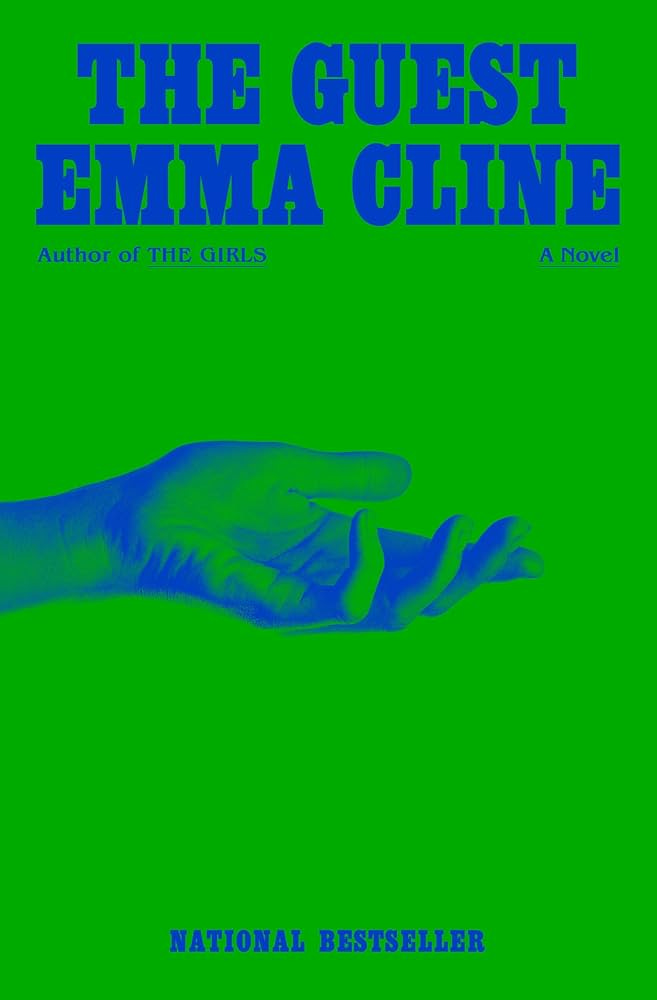
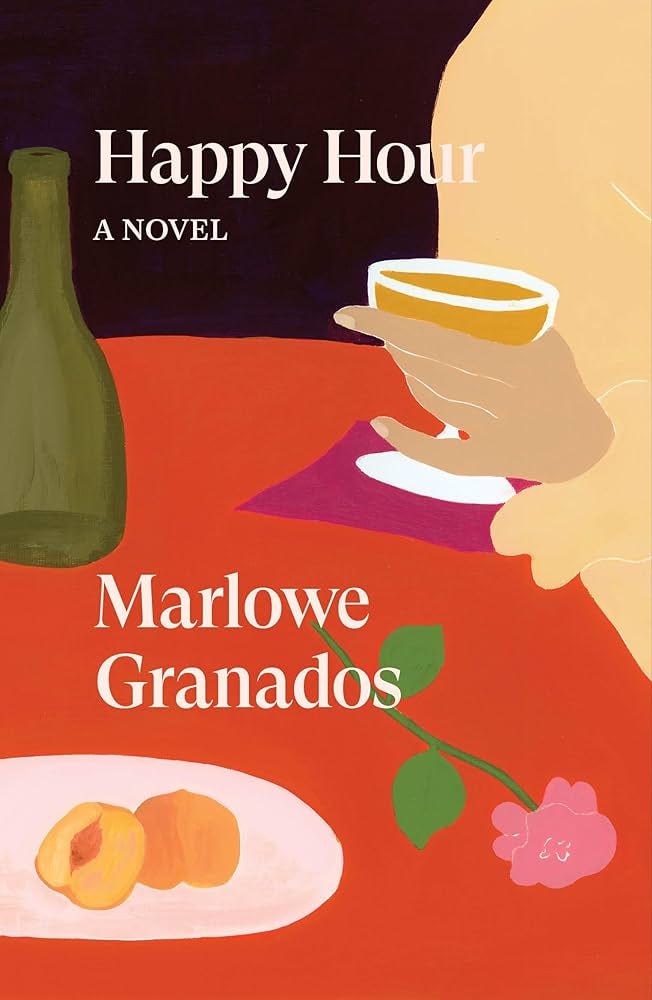
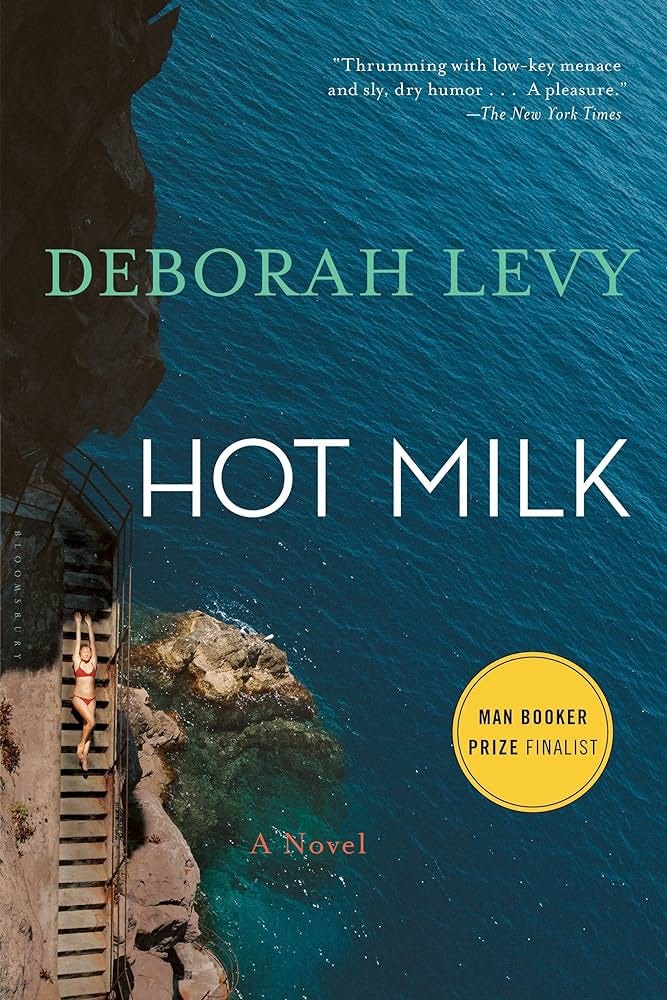
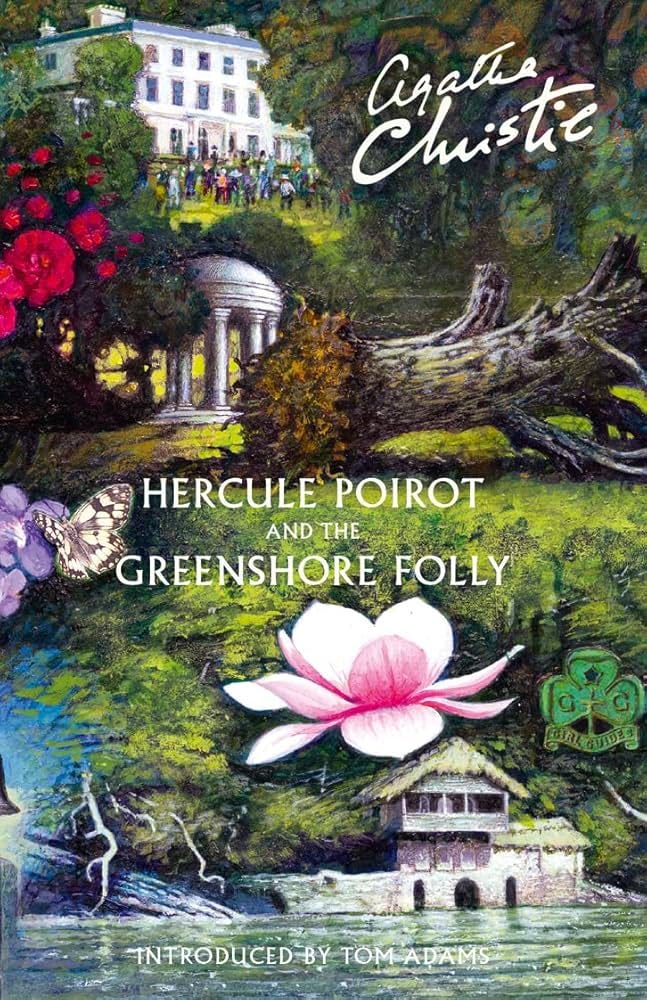
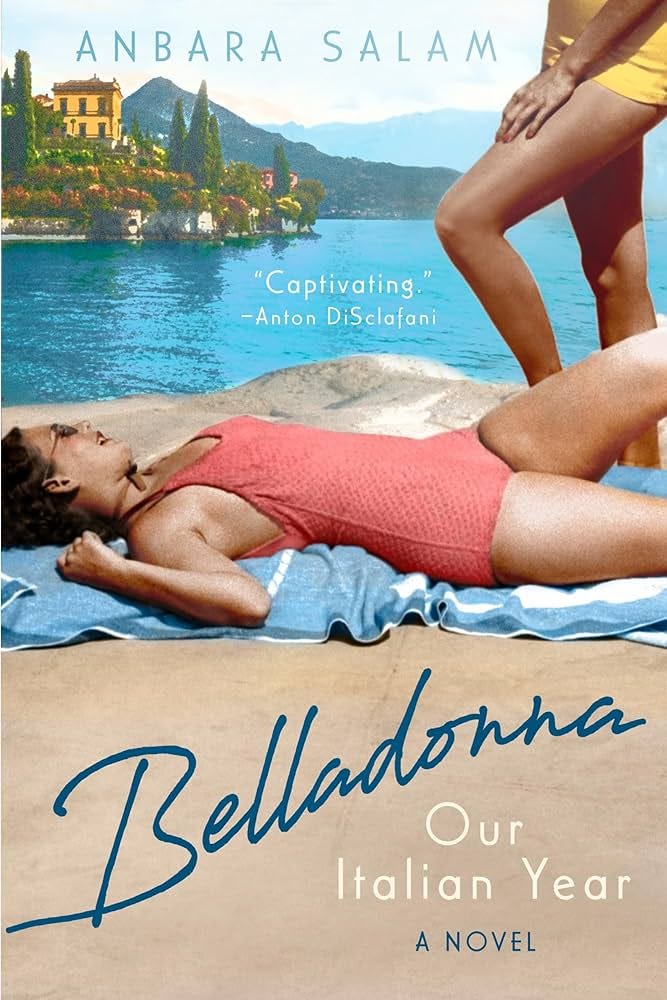
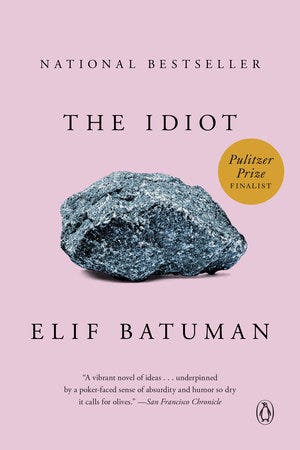
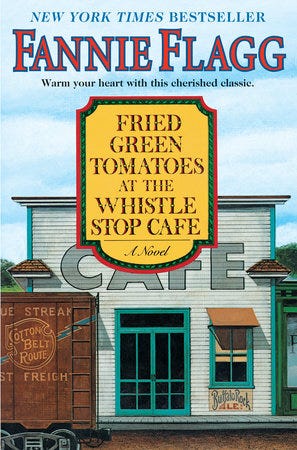
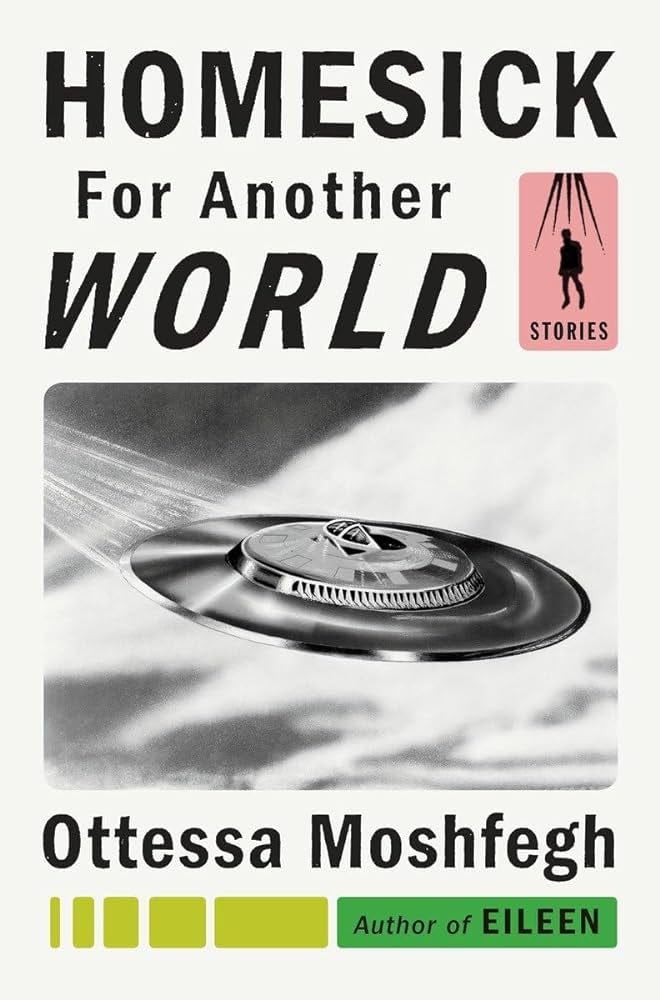
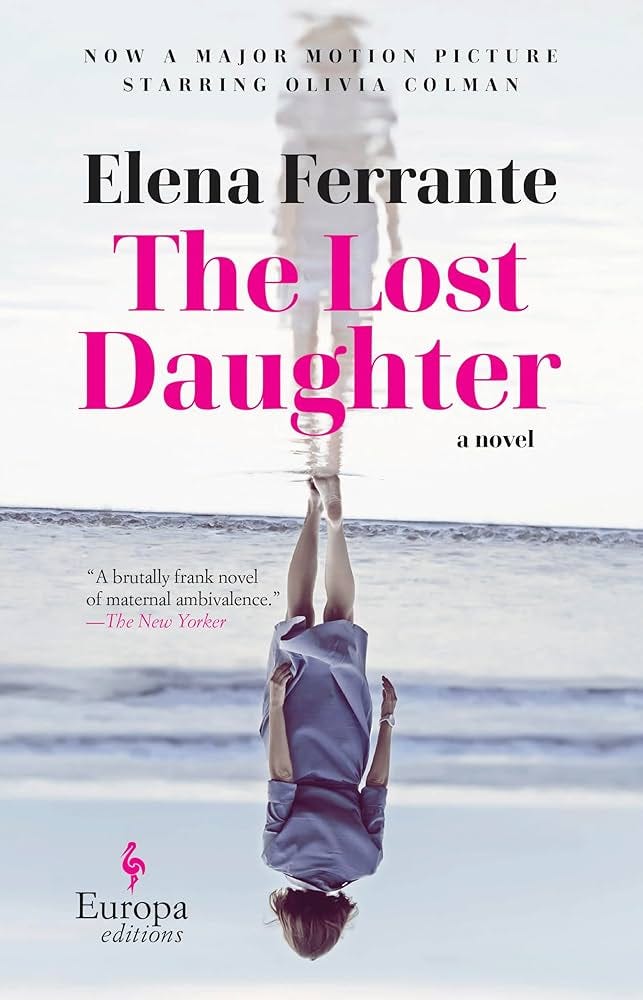
ok, I haven't finished reading yet, but I just had to stop to comment that you MUST read And Then There Were None by Agatha Christie. It's honestly such a great spooky season book, but also if you're looking to get into her writing, this is, imo, the best one (I've read 2 so take my opinion with a grain of salt). Her writing can be a bit dry/slow in the beginning and I know EXACTLY what you mean about Poirot just solving the mystery out of nowhere (I felt like the same thing happened in Orient Express), but And Then There Were None is such a fun whodunnit and I feel it's a great place to start for getting into her writing. I also read this in like 2 days so it's another quick read.
ps. I saw the movie A Haunting in Venice, which I think is in her book of short stories, and it was SO GOOD.
Just finished The Guest today and I love exactly the same things about it! It really reads like a drawn out daydream and it's great